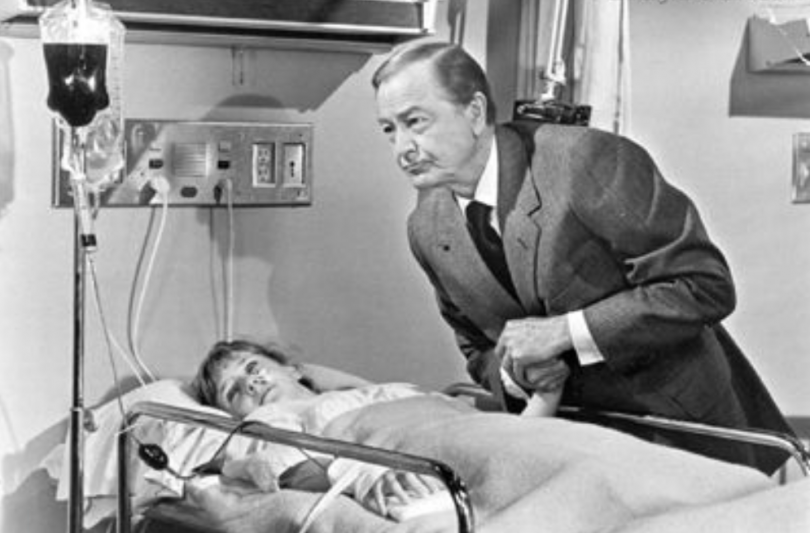Above: Marcus Welby, MD (Robert Young) attends to a patient in the eponymous TV medical drama (1969-1976).
When someone says the word ‘doctor,” do you immediately flash on images of Derek Shepherd (Patrick Dempsey), J.D. Dorian (Zach Braff), Hawkeye Pierce (Alan Alda) or Marcus Welby (Robert Young)?
No one will blame you for that. TV surgeons are exciting, rakish, even. When they’re not flirting or falling in love with other hot TV doctors and nurses, they’re performing heart surgery or brain surgery or some other incredibly complicated operation. And they make it look easy.
By comparison, general physicians seem downright dull. But that’s not really fair. Anyone is dull compared to their TV counterpart. Plus, unlike the way media portrays them, doctors and their specialties vary widely. Here’s a quick guide to the different types of doctors practicing medicine in the real world.
It pays to understand different types of doctors in the real world.
It’s also not accurate to think that all physicians exist at one extreme or another. And there are different types of doctors, too. Knowing the difference matters.
Immediate care doctors
The market for urgent care facilities has really taken off in the last decade or two. In the 1990s, you had to hope and pray that there would be a single walk-in clinic you could go to on weekends. Nowadays, there are urgent care clinics open all over town, and many keep seeing customers well after 5 o’clock rolls around.
Why do people see urgent care doctors instead of their regular physician? For one, not everyone has a regular physician. People who either have no insurance or low-quality insurance are less likely to have a regular doctor they can dial up anytime.
Another factor is convenience. You may be able to call your doctor’s office and get an appointment the same day, or you may have to wait a week or two. If you’re running a fever and throwing up a lot, that’s not going to work. At the same time, you don’t want to go to the emergency room, because that means an even longer wait and a bigger bill.
Urgent or immediate care facilities exist in the large middle ground between those two options. They fill a need that previously went unmet in all but the biggest cities. The doctors who work at urgent care centers have a tough job, as he or she has to evaluate patients without knowing a lot about their medical history.
The point of having a regular physician is seeing someone who knows you because he or she has been treating you for years. Urgent care doctors don’t have that luxury, which makes the job trickier. Many of them do it well, but it’s generally regarded as a more thankless occupation than that of a regular office doctor.
Addiction specialists
People struggling with addiction have lots of options for getting sober and healthy, even if they’re hard to see when an addict is in the middle of the battle and scared to ask for help. One option is an in-patient rehabilitation facility. If you start searching for a rehabilitation facility near you, you’ll notice that many have them employ doctors who specialize in treating patients with addiction issues.
That specialization can be critical to helping the addict climb out of the pit he or she is trapped in, as the process of getting clean is often slow and tenuous.
The process of getting certified as an addiction specialist is not exactly a walk in the park, so any doctor who goes through it probably has a real desire to help those who are struggling. It’s not glamorous by any means, which makes it all the more noble.
![]()













